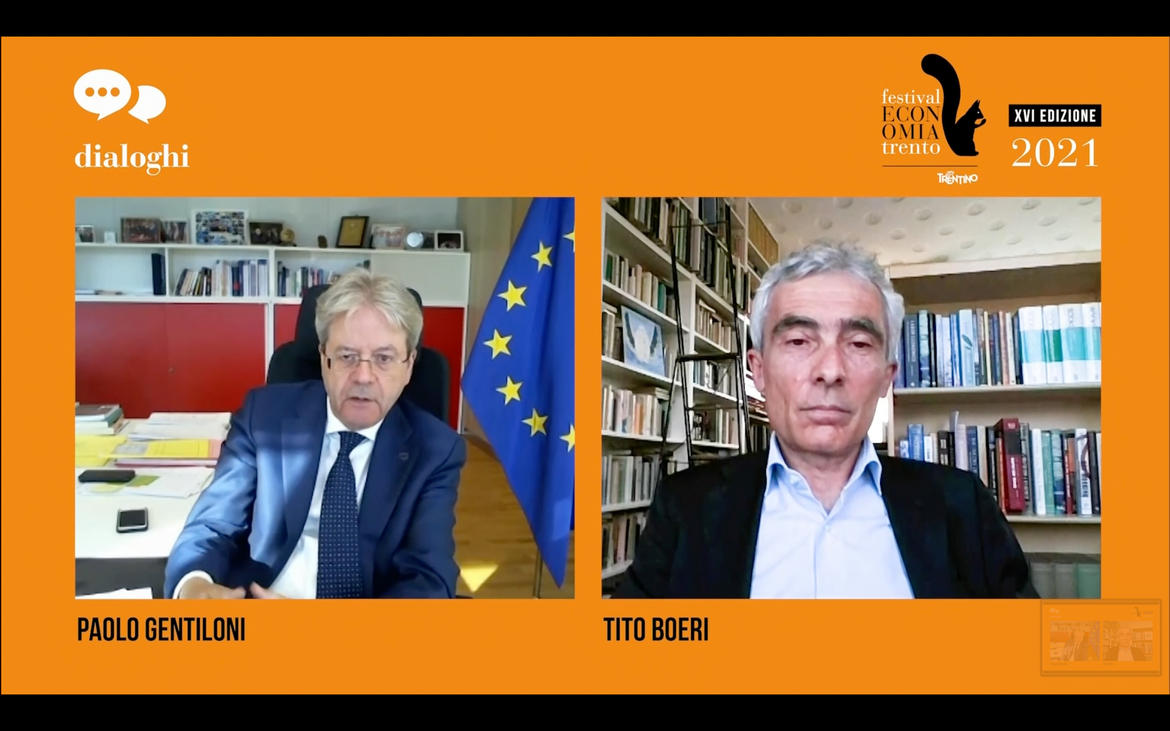
The Next Generation EU plan is proceeding, Boeri states at the opening of the session, with approval by the 27 parliaments and presentation of the national plans. However, asks the Festival’s Scientific Director, will the European Union succeed in respecting the deadline for issuing the first bonds to gather resources by the end of June? “I believe so”, responded the Commissioner. “I am very optimistic about the response of the markets, and we have seen the recent success of the SURE mechanism to safeguard employment”. So what will happen, Boeri continued, if all the countries in the context of the plan ask “only for subsidies and not for loans: would you consider this as a failure of the plan?”. “In general,” replied Gentiloni “it is likely we will have around ten countries that will also request loans”. In any case, with the contribution of Spain and Italy “the macroeconomic impact of the plan will not see a decrease”.
They then moved on to the key question, the link between the reforms implemented and the progress of disbursements (in addition to the first instalment subject to the more “political” judgment of the European Council), a crucial point, especially for Italy. “Representatives of the European Commission will find themselves having to sign for further disbursements of hundreds of billions for projects that they are unable to check. For this reason, attention will be paid to the objectives and timescale within which they must be achieved”, said Gentiloni. Each country should be well aware of this. If in the future there is evidence of “a particularly high level of failure to achieve the targets, there is a concrete possibility that subsequent allocations will not arrive”, explained the Commissioner.
This is also a message for Italy, which as Boeri points out, has set itself the objective of implementing “very difficult reforms, in fields such as taxation and the public administration”. “The challenge for our country is indeed very significant”, Gentiloni admitted. After increased openness regarding possible revision of the rules for the European architecture going beyond the Maastricht criteria (“it is necessary to adapt to the current situation, seeing low interest rates, high debt, an enormous need for public investment and the need for common applicable rules”, Gentiloni affirmed), there was discussion of the American proposal for shared taxation of the profits of multinational companies and measures to combat tax havens. The European Commissioner agrees with minimum taxation of profits where they are generated and not where company headquarters are situated; an element underlined by Boeri. “These objectives”, Gentiloni concluded “are within the reach of the international community thanks to the new commitment of the USA. The European Commission will do everything possible to reach an agreement.”










